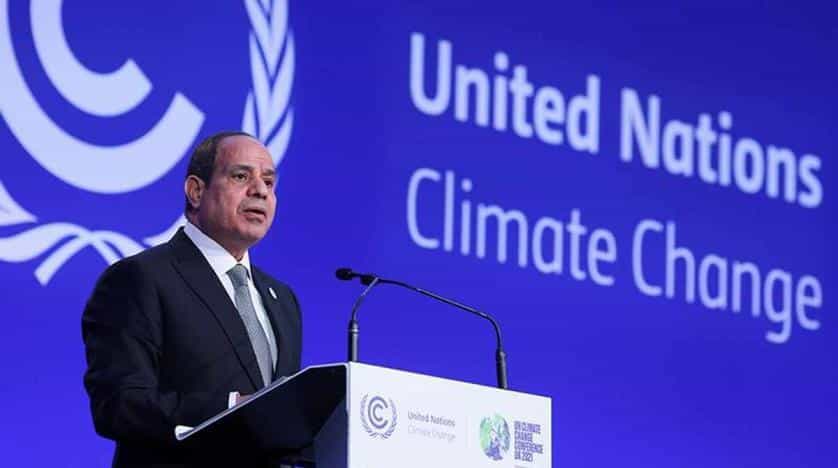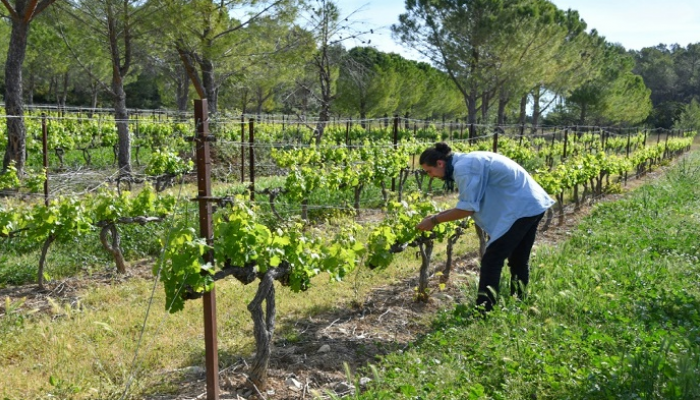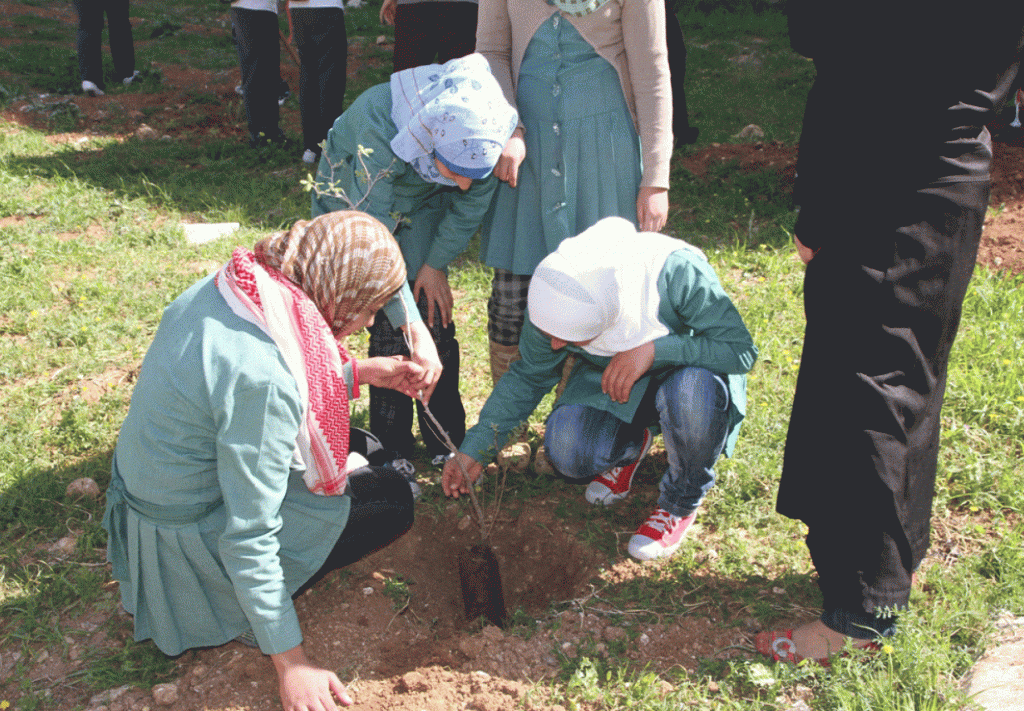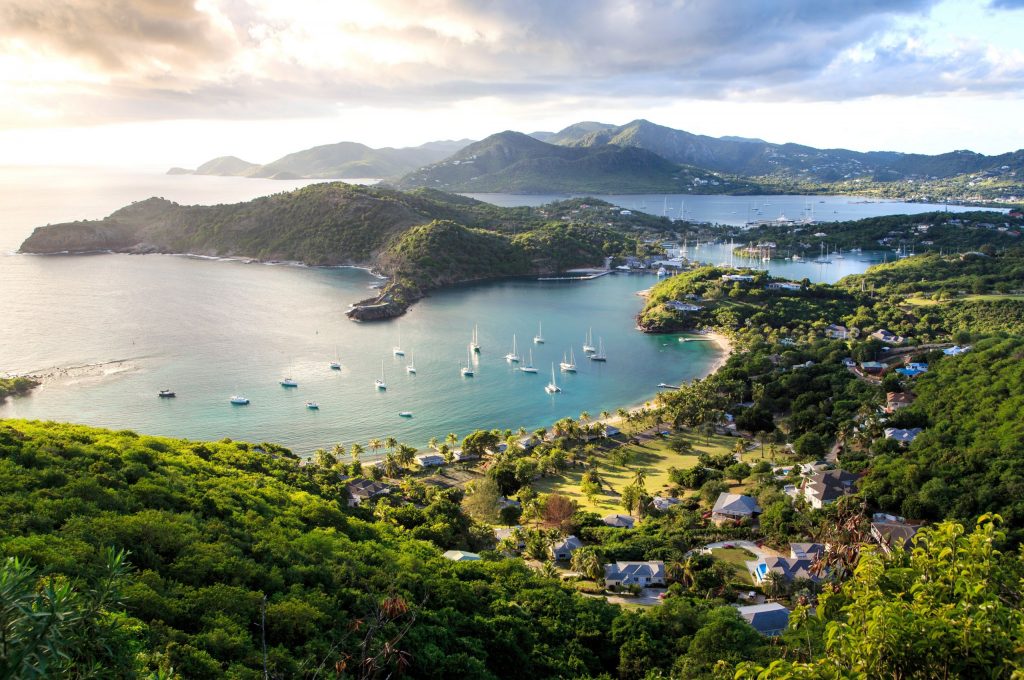
CLIMATE ACTION
The Glasgow Declaration was officially launched at COP26 UN Climate Change Conference. It proposes a coordinated plan for tourism to support the global commitment to halve emissions by 2030 and achieve net zero by 2050 and requests signatories to make tangible commitments around planning, measuring and reporting.
Find out about The Glasgow Declaration

The tourism sector is highly vulnerable to climate change and at the same time contributes to the emission of greenhouse gases (GHG), which cause global warming.
Accelerating climate action in tourism is therefore of utmost importance for the resilience of the sector.
Climate action is understood as the efforts to measure and reduce GHG emissions and strengthen adaptive capacity to climate induced impacts.
The COVID-19 pandemic has led to a 7% reduction of GHG emissions globally in 20202, providing a tangible reference to the magnitude of the effort still ahead in order to achieve the goals of the Paris Agreement, which will require around 7% reduction of emissions on an annual basis throughout the next decade.
According to UNWTO/ITF latest research, released in December 2019 at UNFCCC COP25, CO2 emissions from tourism are forecasted to increase by 25% by 2030 from 2016 levels, against the current ambition scenario.
Therefore, the need to scale up climate action in tourism remains urgent as emissions could rapidly rebound once operations restart and, ultimately, the cost of inaction with regards to climate will be in the long run larger than the cost of any other crisis.
UNWTO is committed to accelerate progress towards low carbon tourism development and the contribution of the sector to international climate goals, in line with the recommendations of the One Planet Vision for a Responsible Recovery of the Tourism Sector from COVID-19 to:
- Strengthen the measurement and disclosure of CO2 emissions in tourism
- Accelerate the decarbonization of tourism operations
- Engage the tourism sector in carbon removal
In order to support the tourism stakeholders to advance on measuring their GHG emissions, in March 2023, UNWTO published the report on CLIMATE ACTION IN TOURISM SECTOR: AN OVERVIEW OF METHODOLOGIES AND TOOLS TO MEASURE GREENHOUSE GAS EMISSIONS.

The report was developed with support from the Federal Ministry for the Environment, Nature Conservation, Nuclear Safety and Consumer Protection of Germany (BMU) and released in collaboration with UN Climate Change (UNFCCC). Read the full report here.
RELATED ACTIVITIES
The Glasgow Declaration: A Commitment to a Decade of Climate Action in Tourism
The Glasgow Declaration aims to act as a catalyst for increased urgency about the need to accelerate climate action in tourism and to secure strong actions and commitment.
The signatories of the Glasgow Declaration on Climate Action in Tourism are committing to act now and accelerate climate action to cut global tourism emissions by at least a half over the next decade and reach Net Zero emissions as soon as possible before 2050. Their actions are aligned with 5 pathways defined in the Declaration: measure, decarbonize, regenerate, collaborate, finance.
The Declaration unites those leading tourism’s transformation around a common set of pathways for climate action, by:
- defining a clear and consistent sector-wide message and approach to climate action in the coming decade, aligned with the wider scientific framework and urgency to act now.
- outlining the pathways and specific actions that will accelerate tourism’s ability to transform tourism and achieve net zero as soon as possible.
- encouraging signatories across all sectors of tourism to demonstrate their public support for scaling up the sector’s response to the climate emergency.
Learn how to become a signatory.
Learn more about the launch of the Glasgow Declaration on Climate Action in Tourism: Side-event at the COP 26 UN Climate Change Conference
Learn more about the Glasgow Declaration from two information sessions held on 21 September 2021.
Learn more about the Glasgow Declaration.
Frequently Asked Questions
The Road to Climate Neutrality: Experiences, Challenges and Support” for the Caribbean tourism sector
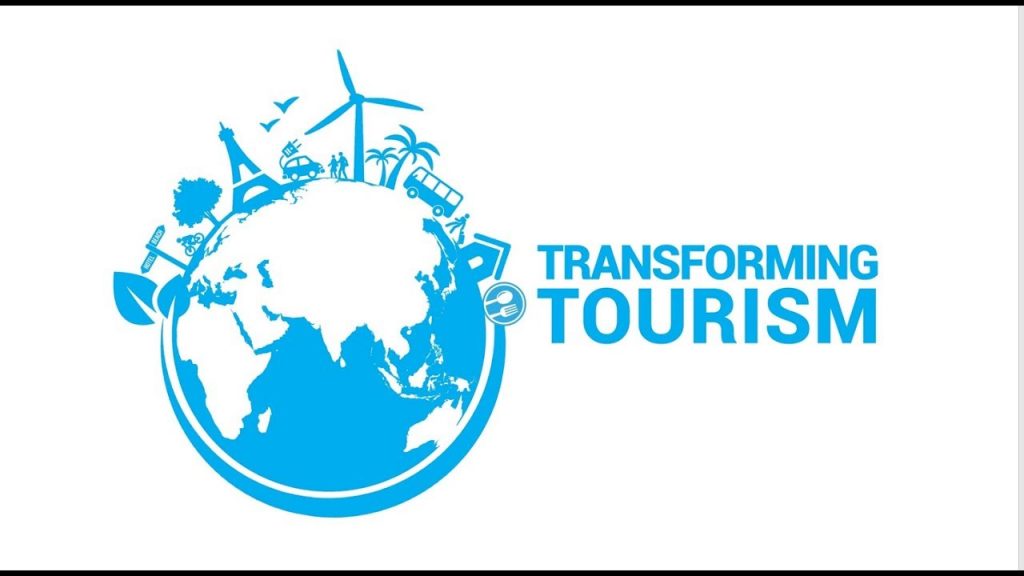
In July 2021, the UNFCCC secretariat, through its Climate Neutral Now initiative and in collaboration with UNWTO, RCC Saint George’s, and other partners, held this webinar for the Caribbean tourism sector.
During the session, the discussions touched upon policies and actions in place and called for those still needed to accelerate the transition of the tourism sector towards climate neutrality.
Leading speakers from companies, organizations, and governments in the region shared their experiences in two round tables. In addition, Climate Neutral Now specialists presented the enhanced version of their initiative, and the criteria for participation.
Learn more about the webinar “How to Get Started on the Road to Climate Neutrality and Net Zero? Practical Actions and Examples.“
Transport-related CO2 emissions from the tourism sector – Modelling results
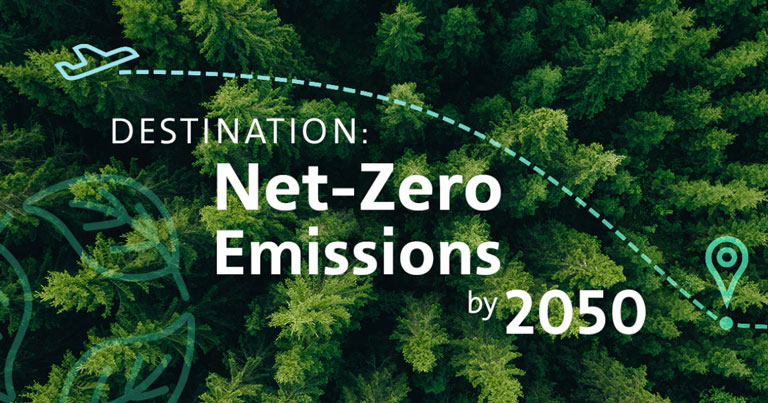
The report released in December 2019 provides insights into the evolution of tourism demand across the different global regions from 2016 to 2030. It presents the expected transport-related CO2 emissions of the tourism sector against the current (2019) ambition scenario for the decarbonization of transport concluding that in 2016 transport-related emissions from tourism contributed to 5% of all man-made emissions and were set to increase to 5.3 % by 2030 against a current ambition scenario.
Read more about the report Transport-related CO2 emissions from the tourism sector
Transforming tourism for climate action – Side event at COP25
Transforming tourism for climate action requires embracing a low carbon pathway with awareness and optimization as key elements.
Awareness: through measurement and disclosure of the emissions related to tourism activities and the setting of evidence-based targets. Optimization: through instruments and strategies to scale-up mitigation and adaptation in the tourism sector with all stakeholders having to play a role.
In the side-event, policy makers discussed their strategic approaches to transform the tourism sector.
CLIMATE ACTION

The Glasgow Declaration was officially launched at COP26 UN Climate Change Conference. It proposes a coordinated plan for tourism to support the global commitment to halve emissions by 2030 and achieve net zero by 2050 and requests signatories to make tangible commitments around planning, measuring and reporting.
Find out about the Glasgow Declaration
The tourism sector is highly vulnerable to climate change and at the same time contributes to the emission of greenhouse gases (GHG), which cause global warming.
Accelerating climate action in tourism is therefore of utmost importance for the resilience of the sector.
Climate action is understood as the efforts to measure and reduce GHG emissions and strengthen adaptive capacity to climate induced impacts.
There is a growing consensus among tourism stakeholders as to how the future resilience of tourism will depend on the sector’s ability to embrace a low carbon pathway and cut emissions by 50% by 2030
The COVID-19 pandemic has led to a 7% reduction of GHG emissions globally in 20202, providing a tangible reference to the magnitude of the effort still ahead in order to achieve the goals of the Paris Agreement, which will require around 7% reduction of emissions on an annual basis throughout the next decade.
According to UNWTO/ITF latest research, released in December 2019 at UNFCCC COP25, CO2 emissions from tourism are forecasted to increase by 25% by 2030 from 2016 levels, against the current ambition scenario.
Therefore, the need to scale up climate action in tourism remains urgent as emissions could rapidly rebound once operations restart and, ultimately, the cost of inaction with regards to climate will be in the long run larger than the cost of any other crisis.
UNWTO is committed to accelerate progress towards low carbon tourism development and the contribution of the sector to international climate goals, in line with the recommendations of the One Planet Vision for a Responsible Recovery of the Tourism Sector from COVID-19 to:
- Strengthen the measurement and disclosure of CO2 emissions in tourism
- Accelerate the decarbonization of tourism operations
- Engage the tourism sector in carbon removal
In order to support the tourism stakeholders to advance on measuring their GHG emissions, in March 2023, UNWTO published the report on CLIMATE ACTION IN TOURISM SECTOR: AN OVERVIEW OF METHODOLOGIES AND TOOLS TO MEASURE GREENHOUSE GAS EMISSIONS.
The report was developed with support from the Federal Ministry for the Environment, Nature Conservation, Nuclear Safety and Consumer Protection of Germany (BMU) and released in collaboration with UN Climate Change (UNFCCC). Read the full report here.
RELATED ACTIVITIES
The Glasgow Declaration: A Commitment to a Decade of Climate Action in Tourism
The Glasgow Declaration aims to act as a catalyst for increased urgency about the need to accelerate climate action in tourism and to secure strong actions and commitment.
The signatories of the Glasgow Declaration on Climate Action in Tourism are committing to act now and accelerate climate action to cut global tourism emissions by at least a half over the next decade and reach Net Zero emissions as soon as possible before 2050.
Their actions are aligned with 5 pathways defined in the Declaration: measure, decarbonize, regenerate, collaborate, finance.
The Declaration unites those leading tourism’s transformation around a common set of pathways for climate action, by:
- defining a clear and consistent sector-wide message and approach to climate action in the coming decade, aligned with the wider scientific framework and urgency to act now.
- outlining the pathways and specific actions that will accelerate tourism’s ability to transform tourism and achieve net zero as soon as possible.
- encouraging signatories across all sectors of tourism to demonstrate their public support for scaling up the sector’s response to the climate emergency.
Learn how to become a signatory.
Learn more about the launch of the Glasgow Declaration on Climate Action in Tourism: Side-event at the COP 26 UN Climate Change Conference
Learn more about the Glasgow Declaration from two information sessions held on 21 September 2021.
Learn more about the Glasgow Declaration.
Frequently Asked Questions
The Road to Climate Neutrality: Experiences, Challenges and Support” for the Caribbean tourism sector

In July 2021, the UNFCCC secretariat, through its Climate Neutral Now initiative and in collaboration with UNWTO, RCC Saint George’s, and other partners, held this webinar for the Caribbean tourism sector.
During the session, the discussions touched upon policies and actions in place and called for those still needed to accelerate the transition of the tourism sector towards climate neutrality.
Leading speakers from companies, organizations, and governments in the region shared their experiences in two round tables. In addition, Climate Neutral Now specialists presented the enhanced version of their initiative, and the criteria for participation.
Learn more about the webinar “How to Get Started on the Road to Climate Neutrality and Net Zero? Practical Actions and Examples.“
Transport-related CO2 emissions from the tourism sector – Modelling results
The report released in December 2019
provides insights into the evolution of tourism demand across the different global regions from 2016 to 2030. It presents the expected transport-related CO2 emissions of the tourism sector against the current (2019) ambition scenario for the decarbonization of transport concluding that in 2016 transport-related emissions from tourism contributed to 5% of all man-made emissions and were set to increase to 5.3 % by 2030 against a current ambition scenario.
Read more about the report Transport-related CO2 emissions from the tourism sector
Transforming tourism for climate action – Side event at COP25
Transforming tourism for climate action requires embracing a low carbon pathway with awareness and optimization as key elements.
Awareness: through measurement and disclosure of the emissions related to tourism activities and the setting of evidence-based targets.
Optimization: through instruments and strategies to scale-up mitigation and adaptation in the tourism sector with all stakeholders having to play a role.
In the side-event, policy makers discussed their strategic approaches to transform the tourism sector.
RELATED LINKS
- Access UNWTO/ITF research on transport-related CO2 emissions from tourism
- Access additional information on the official side-event at COP25
- Watch the Climate Panel from the 23rd UNWTO General Assembly
- Download the report “Climate Change and Tourism – Responding to Global Challenges”
- Global Survey of Climate Action in Tourism
- Tourism Stakeholders Invited to Share Progress on Climate Action






